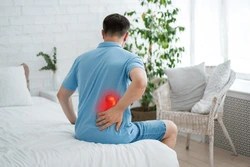Female urinary incontinence can be an incredibly frustrating problem, affecting day to day quality of life. It is a common problem among 25 – 45% of women over the age of 30 in the United States. Getting all the facts can help understand what type of incontinence you have and that you are not alone and have several options for treatment.
Stress Urinary Incontinence

If you have experienced a little “leak” while laughing or sneezing, then you are familiar with stress urinary incontinence. It can occur when you are coughing, doing strenuous exercise, or later in life during menopause when estrogen amounts are reduced. Chronic coughing from smoking is a common risk factor.
A woman’s pelvic floor muscles weaken after giving birth, and bladder muscles weaken with age, all causing those little leaks to become more frequent and annoying.
Treating Stress Incontinence
Simple lifestyle changes can improve or even eliminate stress incontinence. Losing weight will help to reduce pressure on the bladder. Drink sufficient amounts of water each day to stay hydrated, but limit intake at night before bedtime. Avoid caffeine, carbonated drinks and alcohol while getting adequate amounts of fiber.
The best way to improve stress incontinence is to strengthen your pelvic floor muscles through Kegel exercises. Practice stopping your urine flow and holding it for 5 seconds before releasing the muscles. Do 10 -15 repetitions. Try performing these exercises lying down, sitting or standing. A formal pelvic floor physical therapist can be used to help understand the various exercises available and how best to utilize them.
If conservative measures dont do the trick, surgical options such as mid urethral slings or urethral bulking agents can be a safe and effective option.
Urgent Urinary Incontinence
This form of incontinence involves a sudden urge to urinate. It usually comes on abruptly and can become a real lifestyle issue. Those women who suffer with this condition must always be aware of the nearest bathroom, and oftentimes it can limit their daily activities.
Some of the common reasons include:
- An overactive bladder
- Diabetes, which can cause high glucose levels leading to the production of more urine
- Constipation, which can affect the nerves in the bladder
- Neurological conditions like MS can cause urgent urinary incontinence
- Food and fluid triggers, including caffeine and alcohol
If a stinging burning sensation accompanies the urge to urinate, it may be a urinary tract infection, so seeing your doctor can be helpful to rule this out or treat this if present.
Treating Urge Incontinence
One simple change women can make is to drink a little less water. Sometimes we overdo it to stay hydrated. Try reducing the amount and see if that improves the symptoms. Other behavioral habits can be used to try and “retrain” the bladder and its habits.
If these fail, there are several medications that are used to slow down the bladder a bit in order to give you time to urinate and reduce accidents. Like all medications, these can come with some side effects, so discussing this option with your urologist is recommended.
Other effective options include sacral neuromodulation (such as Axonics) or bladder Botox injections in order to regain some control over an eager and overactive bladder. These options can have great results without the same side effects as medications. Thus, they can be a great option for patients at higher risk for medication side effects or those who already take plenty of medications are aren’t looking to add another pill.
Schedule a Urinary Incontinence Appointment in The Woodlands and Houston, TX
Don’t allow urinary incontinence to rule your life or affect your self-esteem. Once the cause is identified, it can be properly addressed. Talk to board-certified urologist Dr. Edward J. Sanchez about your urinary incontinence problems and any recommended treatment. Call (281) 351-5174 to schedule an appointment at our urology clinics in The Woodlands and Houston, TX today.
Sources:
https://www.health.harvard.edu/bladder-and-bowel/types-of-urinary-incontinence
https://www.onhealth.com/content/1/urinary_incontinence_women





